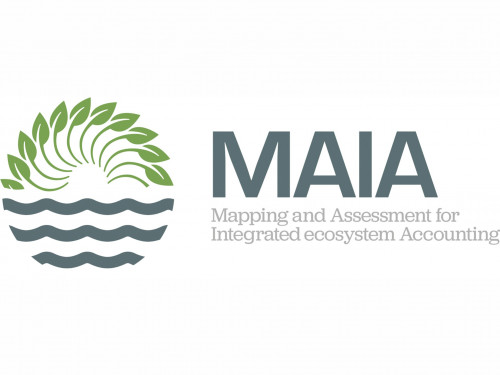The EU Horizon 2020 project MAIA brought together over 100 stakeholders for two online workshops at the end of May 2020. This expert exchange organised by the European Commission and the MAIA project discussed the possible setting up of a European expert working group on the implementation of Natural Capital Accounts (NCAs) in EU Member States.
MAIA (Mapping and Assessment for Integrated ecosystem Accounting) aims at mainstreaming natural capital and ecosystem accounting in EU Member States. In particular, the project has the goal to assess policy priorities for accounting, as well as to test, pilot and mainstream natural capital accounting in the European context.
Natural capital accounting is a powerful tool to inform public and private decision making on natural resources. NCA is also a method to develop well-structured and harmonised databases on biodiversity and ecosystem services that should facilitate their integration into socio-economic accounts. Standards are being developed by UN Statistical Commission, for the system called: System of Environmental Economic Accounting (SEEA), and there are important opportunities and links to the recently revised Regulation on Land Use, Land Use Change and Forestry, the Sustainable Finance Taxonomy Regulation adopted in December 2019, and the ongoing revision of the current EU regulation on EEEA, including new modules on forest, water and natural capital accounts.
In short, with upcoming legislation and research funding further pushing the development of sound national NCAs, it is now time to set up a wider implementation phase of NCA. The latter is also supported by the Knowledge Innovation Project on Integrated System for Natural Capital and Ecosystem Services Accounting in the EU (KIP-INCA) project and is an important action of the newly adopted EU Biodiversity Strategy for 2030, which will be supported by the upcoming Horizon Europe Framework Programme and its Biodiversity Partnership.
For the implementation of the Mapping and Assessment of Ecosystems and their Services (MAES) in EU and its Member States, the EU MAES working group together with the Horizon 2020 project ESMERALDA have demonstrated that bringing together national experts, academics, stakeholders and NGOs on a regular basis stimulated real progress and all Member States are now involved in MAES. So, this type of working group could provide an interesting example for creating an NCA “community of practice”.
The MAIA exploratory meeting investigated the needs of the EU and Member States: from education and awareness-raising to technical support for setting up accounts, from advice on implementing it in public and private sectors, as well as NCA needs to support EU and global policy.
The current capacity and implementation of NCA initiatives among Member States vary from countries that have yet to start to others that have full-scale NCA with their statistical administrations. Here, MAIA comes into play fostering exchanges and networking.
The expert exchange meeting held by MAIA showed great interest of professionals in environmental and statistical administrations from EU Member States. As some countries have developed pilot accounts and have set up exchange processes with experts and policy makers, while other countries are eager to start but still lack critical mass, capacities or technical skills, there is a clear need for structural and continued exchange of knowledge and experiences. The EU officials present at the meeting have confirmed this, and are looking at several suggested ways to set up a structural, beyond-MAIA pan-European exchange on NCA.


